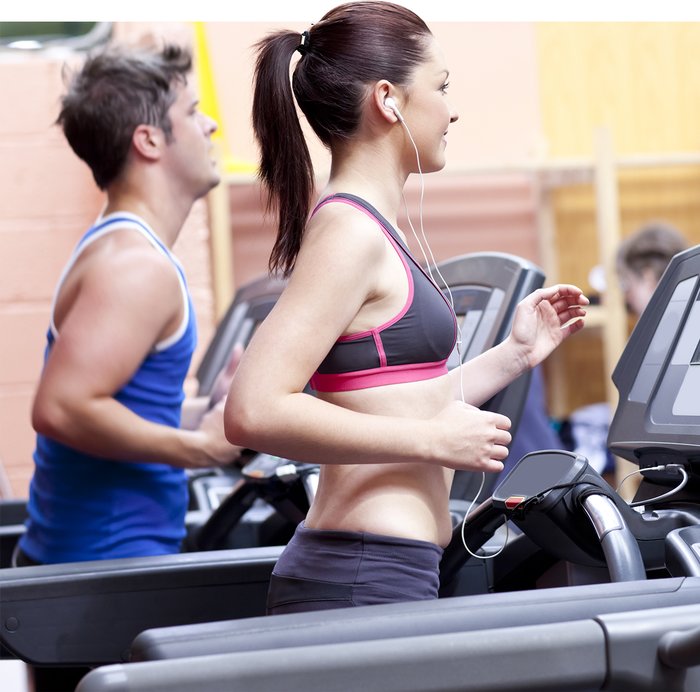If you're out for a run, what difference does it make if you're able to tough it out for another 50 seconds? If you're less than a minute from the top of the hill or the finish line, that extra time can make the difference between feeling exhilaration at having reached your goal—and snatching defeat from the jaws of victory.
How do you get those extra seconds of energy? A research team at the Texas Tech University Health Sciences Center developed a study to measure what impact, if any, listening to lively music would have on exercise tolerance during cardiac stress testing. Doctors routinely use these tests to assess a patient's heart health. As part of the test, researchers measured changes in heart rate and blood pressure, and noted any indications of chest pain or changes in heart rhythm as participants underwent physically stressful exercise.
The tests are often done on a treadmill, following specific protocol in which the treadmill increases in both speed and incline through three, 3-minute stages. In the final stage, the treadmill moves at 3.4 miles per hour at a 14-percent grade. Most of these tests are designed to last up to 20 minutes. The average patient lasts 7-8 minutes.

For this study, they divided 127 participants, all of whom had diabetes and hypertension, into two groups. One listened to up-tempo music, while the other group had earbuds in but did not listen to music.
The group that listened to music was able to outlast the non-music group by an average of 50.6 seconds. Again, being able to go an extra minute may not seem like much, but "after 6 minutes, you feel like you are running up a mountain, so even being able to go 50 seconds longer means a lot," said the study's lead author, Waseem Shami, MD.
Lack of daily activity ranks with hypertension, high cholesterol, smoking, and obesity as a major risk factor for cardiovascular disease. Doctors recommend getting at least 30 minutes a day of moderate exercise, defined as anything that elevates your heart rate 50-60 percent above its resting rate. That could mean anything from taking brisk walks, swimming, or riding a bike to dancing, gardening…even housework counts.
"Our findings reinforce the idea that upbeat music has a synergistic effect in terms of making you want to exercise longer and stick with a daily exercise routine," said Shami. "When doctors are recommending exercise, they might suggest listening to music, too."

